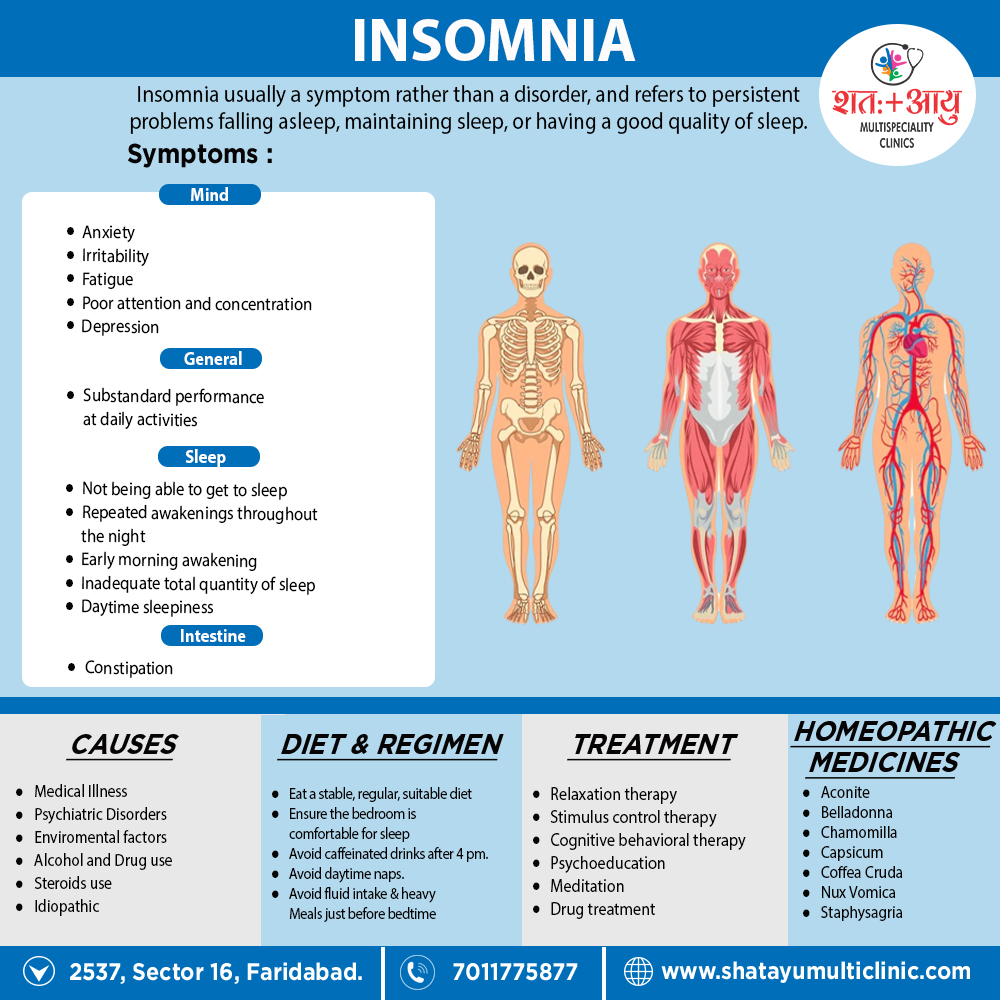Coffea cruda:
Drinking coffee causes a wakeful, somewhat excited state, and homeopathically prepared coffee is indicated for persons in just that same state.
This state is sometimes caused by joy, pleasurable excitement, or sudden happy surprises as well as by unexpected bad news.
Such a state may also be found in those who drink too much wine or in those over-fatigued from long journeys. When the person lies down to attempt to sleep, the mind is simply awake with a flow of ideas.
Nux vomica:
In the classic Nux vomica type of insomnia, the patient can often fall asleep early, but awakens at 3:00 or 4:00 a.m. with great mental activity or worries.
When the time to rise rolls around, the patient finally feels able to sleep but instead must get up in a tired, irritable state. This type of acute insomnia is commonly brought on by the overuse of drugs and/or stimulants including alcohol, coffee, and wine, or by overwork or excess studying.
The typical Nux vomica patient is irritable, easily angered, and impatient—in short, a grump. They are often chilly, nervous, and excitable.
Aconite:
The patient needing Aconite is restless and excited with an anguished kind of fear. Such a state often comes on in the early stages of a sudden acute illness, often after a chill.
But this state may also be caused by a shock or fright, such as a serious accident, natural disaster, or operation.
Chamomilla:
Those needing Chamomilla are usually in an irritable, uncivil state. They are often frantic with pain or irritability and say they “cannot stand it.”
They may have the peculiar symptom of being drowsy during the day, but unable to sleep in spite of sleepiness. This irritability is often found in teething infants who insist on being carried, or in adults who will walk the floor.
Arnica:
This is a well-known remedy for those with bruises and other sorts of trauma, and those needing this remedy for insomnia have often been in a recent accident or had recent exertion and strain.
Such a state is known to travelers as “jet lag.” Many of my patients routinely use Arnica for jet lag with great success.
The patient is overtire but cannot sleep and may feel bruised, or the bed may feel too hard. Remember Arnica for those who have nightmares of the accidents or the injuries that they have suffered.
Cocculus:
In generally, Those needing this remedy are sleepless from exhaustion. Additionally, this often comes on from loss of sleep associated with night watching or nursing ill persons.
Their sleep may interrupted by waking and starting. In detail, Patients needing this remedy are often emotionally sensitive, easily offended, also intolerant of contradiction, or they may be extremely sad.
All in all, Motion sickness is a symptom often see in those who will respond to this remedy.
Belladonna:
Patients who need this remedy may sleepy, yet unable to sleep. They often start or jerk suddenly during sleep or when falling asleep.
Teeth-grinding during sleep is a common symptom. They are often restless. This type of sleepless state is often see in those coming down with an acute illness or fever.
Gelsemium:
Those needing this remedy for insomnia are often dull and drowsy, may even trembling.
Yet they cannot get fully to sleep; their bodies are still and they may appear asleep from the outside, but they are on the edge of sleep internally.
Sometimes they start on falling asleep. When finally asleep they may have restless sleep or a stupid, heavy sleep.
Or, conversely, they may have a sort of nervous irritation, much like the Coffea patient, that comes on from anticipation of an upcoming event.
Capsicum:
Think of homeopathic Capsicum for those with sleeplessness from homesickness or similar emotional states, especially if they have red cheeks.
Staphysagria:
Consider this remedy for those who are sleepless after a fit of anger or after a dispute in which their honor wounded and they suppressed their anger.
Some of the other remedies mentioned, such as Nux vomica, Aconite, Chamomilla, and Coffea also may have sleeplessness after a fit of anger. Look at other characteristics to distinguish one from the other. [3]

